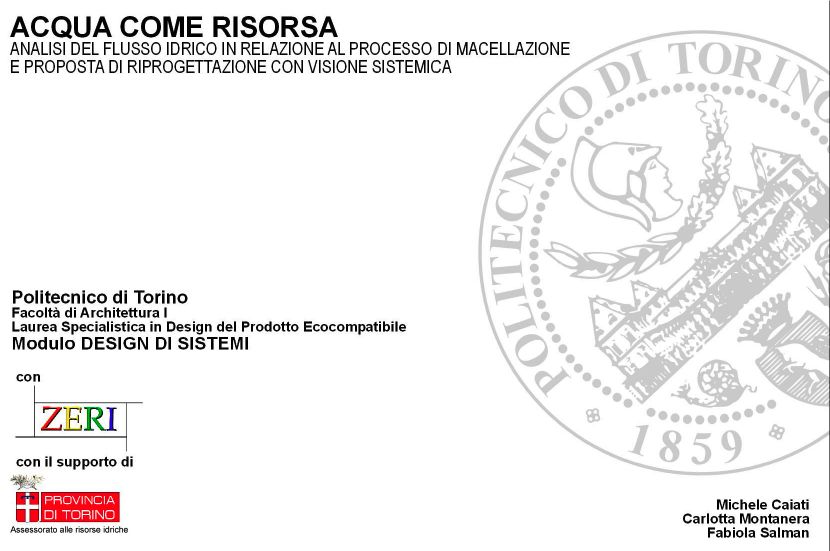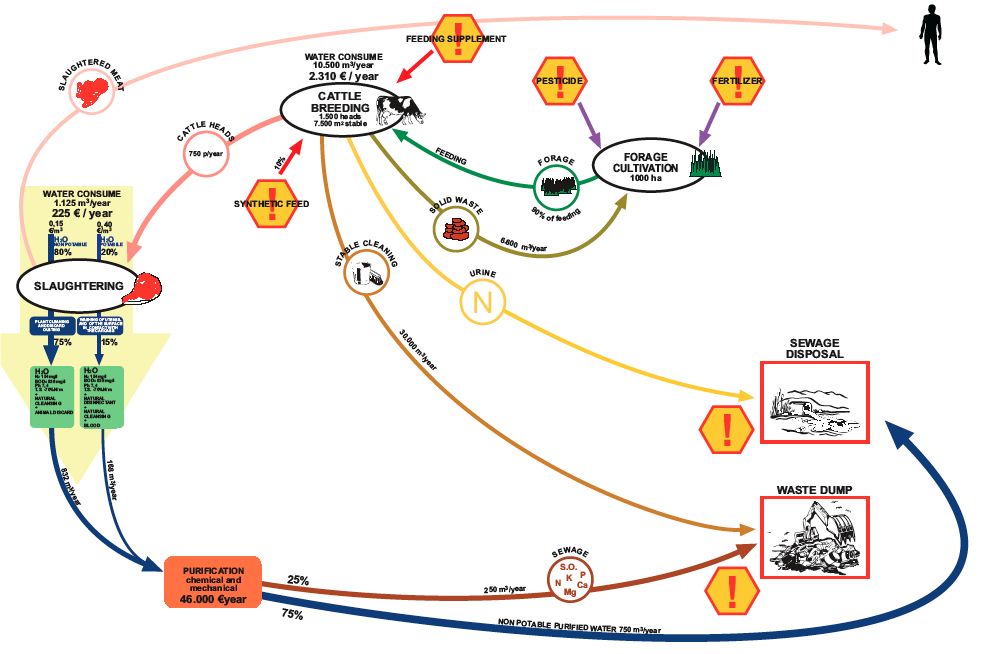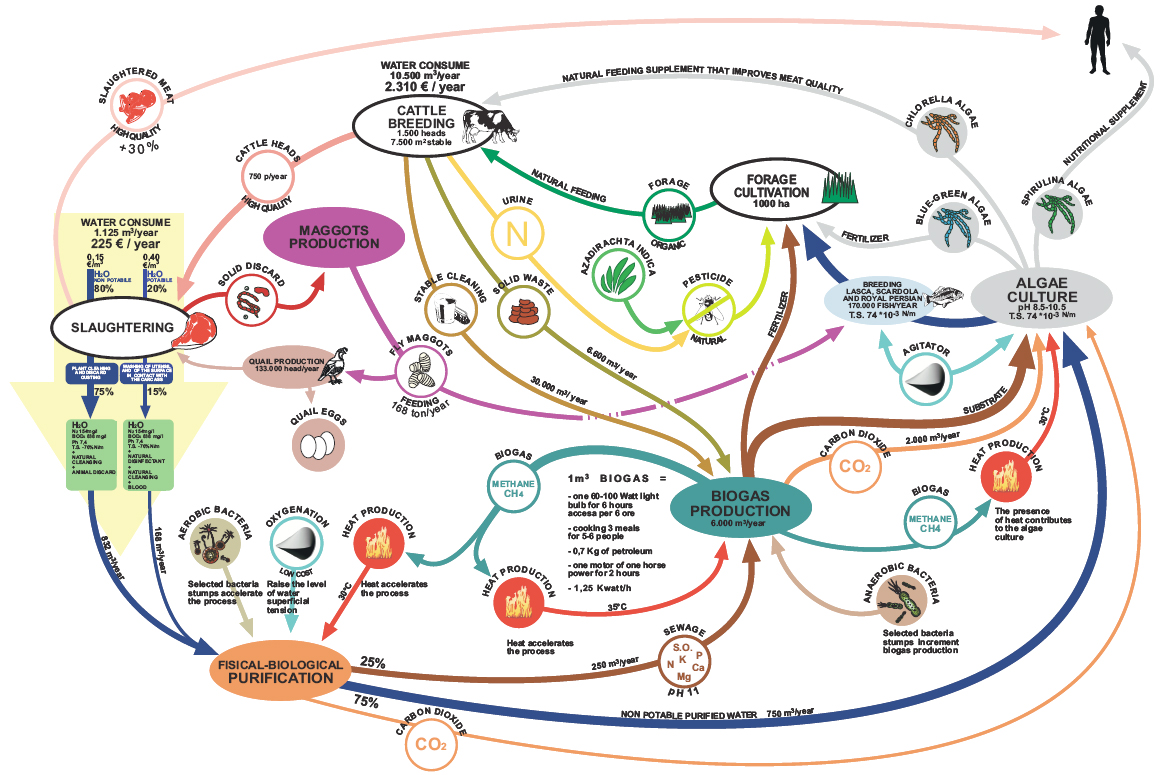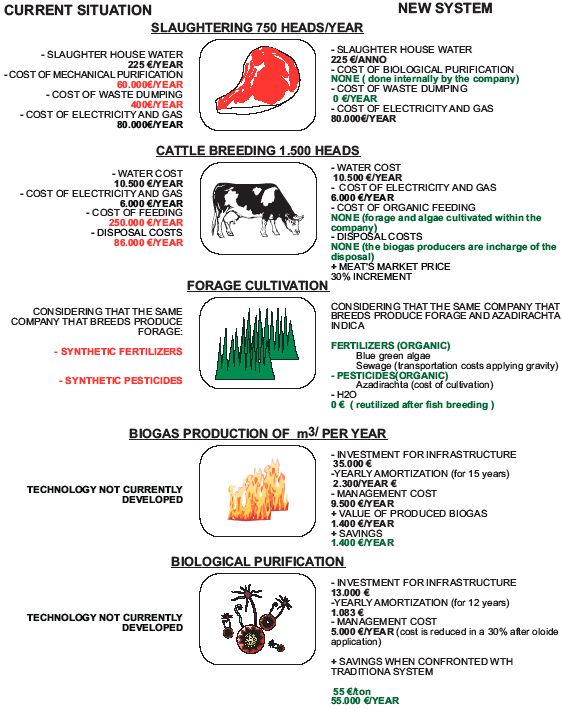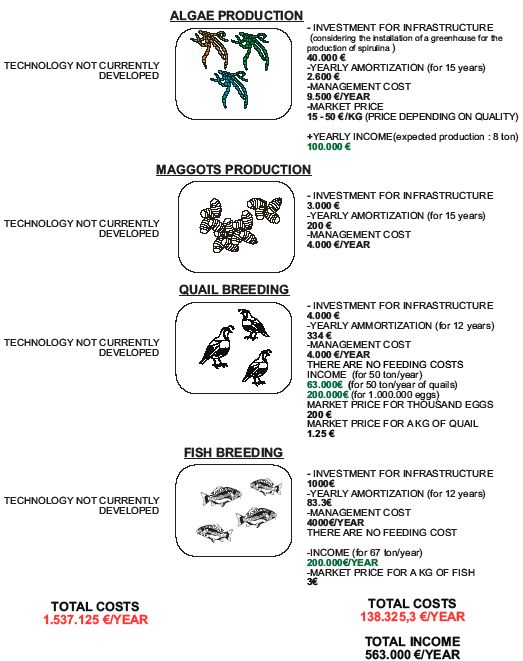Integrated Food and Waste Management System
Main > Food and Agriculture > Soil and compost
Introduction
IFWMS (also known as “Zero waste agriculture”): a type of sustainable agriculture which optimizes use of energy and nutrients in a synergistic integrated cycle of profit making processes where the waste of each process becomes the feedstock for another process. Also known as “Zero waste agriculture”.
Aspects may include: optimization of food production in an ecological sound manner, reduction in water consumption through and recycling and reduced evaporation, energy security through biomethane (biogas) and biodiesel (micro-algae) as by-products of food production, provides climate change relief through the substantial reduction in greenhouse gas emissions compared to traditional agriculture with fossil fuel usage, reduction of pesticide use through biodiverse farming and integrated pest management.
Assessment: Integrated food systems are desirable. Here is a high level proposition. As ecological collapse moves forward, here is a regenerative proposition, which is worth pursuing and developing at all scales.
Current Production Methods: Need to be Improved
The Integrated System Proposition
Economic Analysis
Biogas Powered Cars
Compressed biogas from IF&WMS can be used to power cars. See this: [1] - this is from ISIS, who have tried Dream Farm 2 as a model IF&WMS.
Videos
Discussion
1.9.09 - Integration is not easy. For the entire system to work - major, diverse infrastructure requirements exist. These may include water-tight storage vessels, ponds, vats, earth structures, containers, etc. - which at a large scale, require significant startup capital, heavy equipment and large-scale planning to implement. Materials handling is a huge requirement.
Because of the above difficulties and others, traditional farming remains at monoculture.
One of the main keys to diversified farming is availability of equipment - which is being addressed by the Global Village Construction Set.
With basic earth moving equipment available, Factor e Farm will be implementing a system in 2009. Capacities include earth moving, pond digging, lumber generation for rot-resistent containers, and soil preparation equipment. Next in line is the genetic base.
Rasmus Kiehl 2009 collection
A large number of additional IFWMS diagrams were made by OSE contributor Rasmus Kiehl while working on the OSE wiki in 2009. This material has been archived at: http://opensourceecology.org/wiki/IFWMS-Kiehl2009Archive
Links
- Wikipedia: Zero Waste Agriculture
- Wikipedia: Integrated multi-trophic aquaculture
- 4 in 1 biogas technology from China - http://openfarmtech.org/4in1.doc
- Project by ZERI in Namibia: Beer and Spirulina
- "Integrated Bio-Systems : A Global Perspective"
